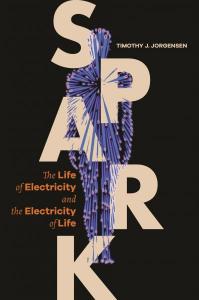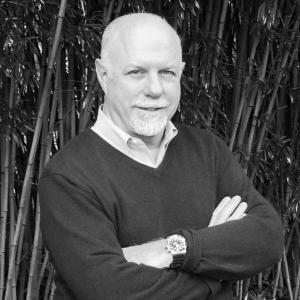
Timothy J. Jorgensen—Spark: The Life of Electricity and the Electricity of Life
AND THE ELECTRICITY OF LIFE
Timothy J. Jorgensen
Princeton University Press, November 16, 2021, $29.95
ISBN-10: 0691197830, ISBN-13: 978-0691197838
ebook ISBN: 9780691232652
Jorgensen reports:
When we think of electricity, we typically imagine the energy humming inside our appliances or illuminating our homes. But electricity is much more than that. Spark takes a fresh look at electricity and its essential role in the body. In writing Spark, I sought to tell the story of electricity from a biological perspective and illustrate how electricity is central to life itself.
The story of how humankind came to understand electricity is rooted in observations of its influences on the body, particularly the nervous system. Through tales of real people, from Benjamin Franklin to Elon Musk, I show how our views of electricity and the nervous system evolved in synchrony, and how progress in one area enabled advancements in the other. Collectively, the joint developments in these two scientific fields allowed us to understand—and emulate—the ways electricity enables most all of the body’s essential functions.
Spark is my second book. My first book, Strange Glow: The Story of Radiation, took a similar narrative approach. While researching that book, I happened upon many fascinating scientific stories about electricity. When my literary agent urged me to write another book, I proposed a book about electricity, written in the same story-telling style as Strange Glow.Since Strange Glow had been a critical success, Princeton, which held a right-of-first-refusal on my subsequent books, offered me a contract to write an electricity book.
Spark took 18 months to write, much less than for Strange Glow. Having written a book before allowed me to hone strategies for working more efficiently, with fewer false starts and complete rewrites. In writing Spark, I also changed some things that I didn’t like about Strange Glow’s narrative. I used a first-person instead of a third-person perspective, for example.
I would advise aspiring narrative science book writers to get a good literary agent. There are a limited number of narrative science book publishers out there and an agent will polish and tailor your proposal to target the appropriate acquisition editors, thereby increasing the likelihood of success. An agent will also negotiate a better contract than you could yourself.
Contact info:
- Timothy J. Jorgensen: 301-367-0262, tjorge01@icloud.com, https://www.timothyjorgensen.com, @Tim_Jorgensen
- Book: https://press.princeton.edu/books/hardcover/9780691197838/spark
- Publicist: Sara Henning-Stout, 609-759-8208, Sara_HenningStout@press.princeton.edu
- Agent: Jessica Papin, 908-693-4646, jpapin@dystel.com
NASW members: will your book be published soon? Promote it by submitting your report for Advance Copy.
Tell your fellow NASW members how you came up with the idea for your book, developed a proposal, found an agent and publisher, funded and conducted research, and put the book together. Include what you wish you had known before you began working on your book, or had done differently.
See https://www.nasw.org/advance-copy-submission-guidelines.
View Advance Copy archives at https://www.nasw.org/member-article/advance-copy.
Thinking of writing a book? If you are a NASW member, you may access a list of more than 200 books and online resources to help you craft your book proposal, find an agent and funding sources, negotiate your contract, learn about self-publishing, publicize and market your book, and more at https://www.nasw.org/article/write-book.
Send book info and questions about book publishing to Lynne Lamberg, NASW book editor, llamberg@nasw.org.
Follow @LynneLamberg on Twitter for news about science/medical books and writing.
Advance Copy
The path from idea to book may take myriad routes. The Advance Copy column, started in 2000 by NASW volunteer book editor Lynne Lamberg, features NASW authors telling the stories behind their books. Authors are asked to report how they got their idea, honed it into a proposal, found an agent and a publisher, funded and conducted their research, and organized their writing process. They also are asked to share what they wish they’d known when they started or would do differently next time, and what advice they can offer aspiring authors. Lamberg edits the authors’ answers to produce the Advance Copy reports.
NASW members: Will your book be published soon? Visit www.nasw.org/advance-copy-submission-guidelines for information on submitting your report.
Publication of NASW author reports in Advance Copy does not constitute NASW's endorsement of any publication or the ideas, values, or material contained within or espoused by authors or their books. We hope this column stimulates productive discussions on important topics now and in the future as both science and societies progress. We welcome your discussion in the comments section below.





